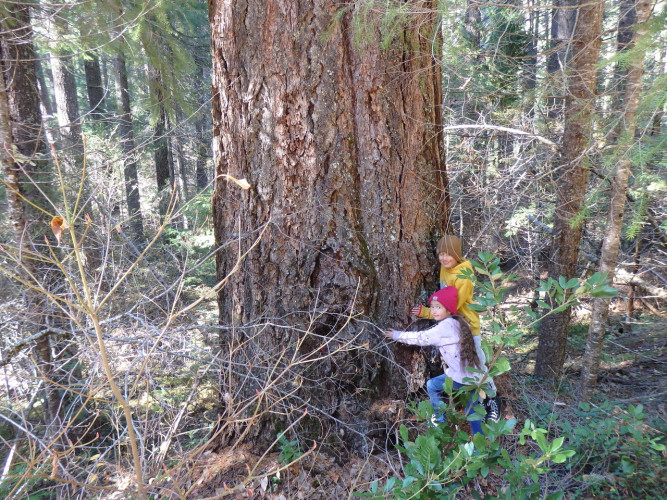From the Open-Publishing Calendar
From the Open-Publishing Newswire
Indybay Feature
Community Groups Sue U.S. Forest Service over Unprecedented Plumas Forest Logging Plan
The Massive $650 Million Logging Project Targets Mature and Old-Growth Forest, While the Forest Service Admits Prescribed Fire Alone is Effective and Far Cheaper
SACRAMENTO, CA— A coalition of community groups filed suit in federal court over the failure of the U.S. Forest Service (USFS) to prepare an Environmental Impact Statement (EIS) before unleashing industrial logging and herbicide application on 217,721 acres of the Plumas National Forest, including 133,321 acres of mature and old-growth forest. The U.S. Forest Service plans to sell to timber corporations hundreds of thousands of mature and old-growth trees from remote public forests, even as the Biden Administration is creating policies that could potentially protect such forests.
SACRAMENTO, CA— A coalition of community groups filed suit in federal court over the failure of the U.S. Forest Service (USFS) to prepare an Environmental Impact Statement (EIS) before unleashing industrial logging and herbicide application on 217,721 acres of the Plumas National Forest, including 133,321 acres of mature and old-growth forest. The U.S. Forest Service plans to sell to timber corporations hundreds of thousands of mature and old-growth trees from remote public forests, even as the Biden Administration is creating policies that could potentially protect such forests.
Deceptively attempting to spin the project as a “community protection” measure, the Forest Service ignored stacks of scientific studies—many from its own scientists—finding that logging under the guise of “thinning” kills more trees than it prevents from being killed and makes fires spread faster, often toward towns. The Forest Service’s approach here—logging vast areas of remote forests and telling the community that the “thinned” forests would act as a “firebreak”—is the same one that led to the destruction of numerous towns in the northern Sierra Nevada recently, including Paradise, Greenville, Grizzly Flats, and many others. John Preschutti, of plaintiff group Plumas Forest Project, lost his family home in the Camp fire.
The agency’s own scientists concluded that the only effective way to protect homes is to inform homeowners about “home hardening” fireproofing measures and to conduct “defensible space” pruning within a couple of hundred feet or less of homes—not logging remote mature and old-growth forests. The Forest Service refused to consider this vital evidence. The agency admitted that prescribed fire alone—without logging—can help protect communities and is several times less expensive, but the agency went ahead with the unprecedented logging project anyway.
“Climate-driven wildfires require a new approach that puts community hardening, defensible space, and protecting forests first,” said Josh Hart with Portola, CA-based Feather River Action. “We demand an immediate halt to industrial scale forestry on public lands that puts our climate, wildlife, and rural communities at risk.”
“The Forest Service knows this backcountry logging approach is a proven failure and is associated with the destruction of many towns,” added Dr. Chad Hanson, a wildfire scientist with the John Muir Project. “We know how to protect communities from wildfires, but the Forest Service has chosen to instead prioritize destructive logging that would increase the risk.”
The agency’s own scientists concluded that the only effective way to protect homes is to inform homeowners about “home hardening” fireproofing measures and to conduct “defensible space” pruning within a couple of hundred feet or less of homes—not logging remote mature and old-growth forests. The Forest Service refused to consider this vital evidence. The agency admitted that prescribed fire alone—without logging—can help protect communities and is several times less expensive, but the agency went ahead with the unprecedented logging project anyway.
“Climate-driven wildfires require a new approach that puts community hardening, defensible space, and protecting forests first,” said Josh Hart with Portola, CA-based Feather River Action. “We demand an immediate halt to industrial scale forestry on public lands that puts our climate, wildlife, and rural communities at risk.”
“The Forest Service knows this backcountry logging approach is a proven failure and is associated with the destruction of many towns,” added Dr. Chad Hanson, a wildfire scientist with the John Muir Project. “We know how to protect communities from wildfires, but the Forest Service has chosen to instead prioritize destructive logging that would increase the risk.”
For more information:
http://featherriveraction.org
Add Your Comments
We are 100% volunteer and depend on your participation to sustain our efforts!
Get Involved
If you'd like to help with maintaining or developing the website, contact us.
Publish
Publish your stories and upcoming events on Indybay.
Topics
More
Search Indybay's Archives
Advanced Search
►
▼
IMC Network



